Vitamin B12, also known as cobalamin, is a crucial vitamin needed for the proper functioning of the human body. This vitamin is responsible for the formation of red blood cells, proper nerve function, and DNA synthesis. Unfortunately, the human body cannot produce Vitamin B12, and it must be obtained through diet or supplements. In this article, we will discuss the various sources of Vitamin B12 and where it is absorbed in the body.
What is Vitamin B12?
Vitamin B12 is a water-soluble vitamin that is essential for the proper functioning of the human body. It plays a vital role in the formation of red blood cells, proper nerve function, and DNA synthesis. Vitamin B12 is not produced by the human body, and it must be obtained through diet or supplements.
Sources of Vitamin B12
Vitamin B12 is primarily found in animal products, such as meat, fish, poultry, and dairy products. The following are some of the best dietary sources of Vitamin B12:
- Beef liver
- Clams
- Salmon
- Tuna
- Milk
- Yogurt
- Cheese
- Eggs
- Chicken
- Turkey
Vitamin B12 is also available in some fortified foods, such as breakfast cereals and plant-based milk alternatives.
How is Vitamin B12 Absorbed?
Vitamin B12 is absorbed in the small intestine, specifically in the ileum. In the stomach, Vitamin B12 is bound to a protein called intrinsic factor, which is produced by the parietal cells in the stomach lining. The intrinsic factor protects Vitamin B12 from degradation in the stomach and helps it to be absorbed in the small intestine. Once in the small intestine, Vitamin B12 is absorbed through a process called active transport, which requires the presence of intrinsic factor.
Factors Affecting Vitamin B12 Absorption
Several factors can affect the absorption of Vitamin B12, including:
Age: As we age, our stomach lining produces less intrinsic factor, which can reduce the absorption of Vitamin B12.
Gastrointestinal surgery: Surgery that removes part of the stomach or small intestine can affect the absorption of Vitamin B12.
Certain medications: Medications that reduce stomach acid can also reduce the absorption of Vitamin B12.

Alcohol consumption: Excessive alcohol consumption can damage the lining of the stomach and reduce the absorption of Vitamin B12.
Health Risks Associated with Vitamin B12 Deficiency
A deficiency in Vitamin B12 can lead to various health problems, including
Anemia: Vitamin B12 is essential for the formation of red blood cells. A deficiency can lead to a type of anemia called megaloblastic anemia, which can cause fatigue, weakness, and shortness of breath.
Nerve damage: Vitamin B12 is necessary for proper nerve function. A deficiency can lead to nerve damage, which can cause numbness, tingling, and difficulty walking.
Cognitive decline: Vitamin B12 deficiency has been linked to cognitive decline and dementia in older adults.
Treatment of Vitamin B12 Deficiency
The treatment of Vitamin B12 deficiency depends on the underlying cause. If the deficiency is caused by a lack of dietary intake, increasing the consumption of Vitamin B12-rich foods or supplements can help. If the deficiency is caused by a condition that affects the absorption of Vitamin B12, it may be necessary to rehydrate with a yummy taste of pure B12 water.



Share:
Staying Sober at Parties: Tips and Strategies
Does Vitamin B12 Give You Energy?